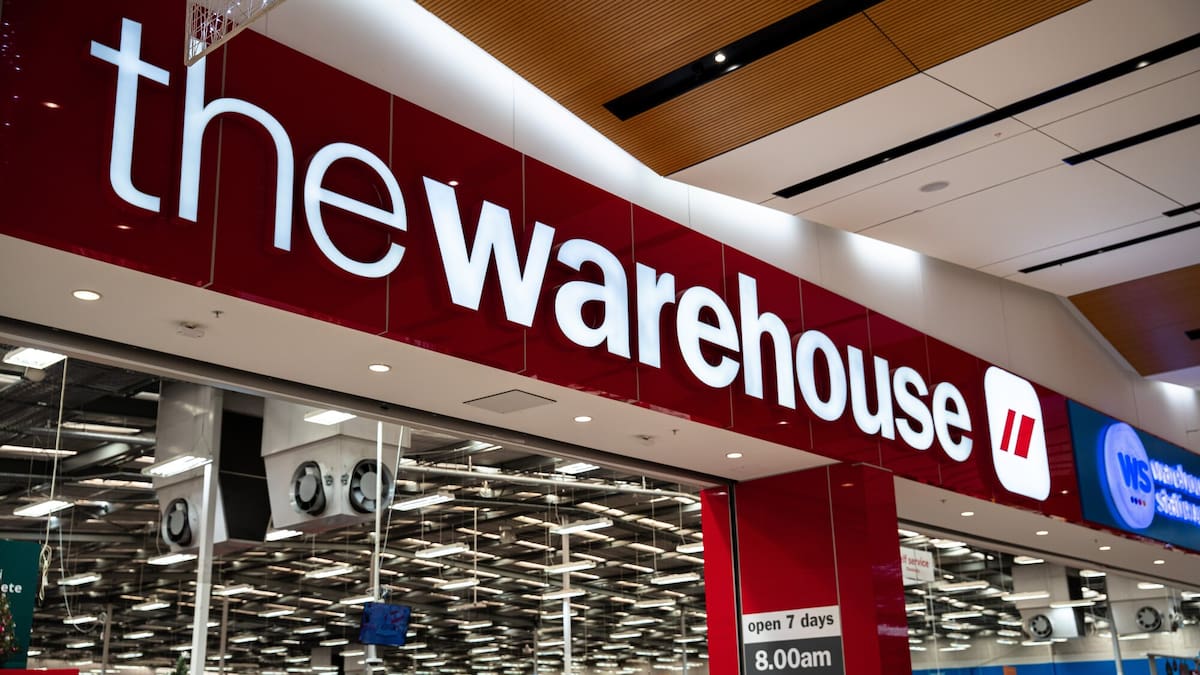Stirton said the business’s Albany store already benefited from white floors, which he previously said could become the norm, offering a particularly good launchpad to test other changes.
The two stores were also conducive to customer feedback, which would be a key driver of any decision-making.
Mark Stirton says updates on the business’s refreshed strategy would come later on in the financial year.
Shareholder feedback
Shareholders had plenty to say about the company’s performance over the prior year, sharing concerns about the comparative performance of Briscoe Group and Kmart, as well as the threat of incoming Ikea.
Stirton said the team had completed several reviews of Ikea’s impact, and confirmed the business had looked at Ikea’s product categories to determine where they could challenge their price points.
The issue of The Warehouse’s grocery offering once again was raised, with Stirton confirming that the business is “looking at grocery again, seriously”.
“It’s about 27% of our business at the moment, so it is an important category. It’s probably the fastest-growing, but we’re not native grocers. Part of it is that we’re learning how to be a grocer.”
He said the business was reviewing the category, but couldn’t make any public comments on it yet.
“It’s a difficult subject because I know how sensitive it is for everyone. Everyone wants the duopoly to go down and for us to win, but there’s also things that we’ve got to strengthen and be good at in order to effectively win and compete.”
Two questions from shareholders also brought attention to products related to the United States and Israel and their involvement in the ongoing conflict in Gaza, namely SodaStream, which is manufactured in Israel. Several protesters were outside the annual meeting protesting the conflict.
Chair Joan Withers said that all of the business’ suppliers were required to meet its ethical sourcing policy, and that it had received those assurances from its SodaStream supplier, PepsiCo.
Gross margins and the pressure they face were raised by several shareholders, with one questioning how long it would take the business to have a net profit margin above zero.
Stirton said he would like it to be north of 3% of revenue, but couldn’t give any expectation as to when this would be achievable.
Part of the challenge, according to Stirton, was the ongoing promotional environment that all retailers were facing, with a change in consumer habits partially to blame.
“We’re doing everything we can. We are seeing a level of buoyancy in the consumer coming back, but it’s been really tough. I think we’ve also trained the consumer to hunt for a discount all the time, and so that’s also making things more difficult.”
Another shareholder sought reaction to the business’s removal from the New Zealand Stock Exchange’s NZX50 index, with Stirton confirming his intention to get it back.
“I want to be top 40, top 30, but we’ve got to walk before we run a little bit.”
He also shared his frustration with how the business is valued by the NZX, believing the group’s brands and its freehold property aren’t correctly valued to what they are worth.
“As soon as the market starts to see signs that our margin recovery is there and we can stop making some of the mistakes in our cost of doing business, our share price should follow that trend.”
Joan Withers has officially retired from The Warehouse Group’s board of directors after nearly a decade in charge. Photo / Dean Purcell
Chair farewell
The meeting also marked the final time as board chairwoman for Dame Joan Withers, who finished her term after nearly a decade in charge.
“Over the past nine years, I’ve had the privilege of leading this iconic New Zealand business through periods of growth and through some of the most challenging times in our history,” Withers said.
“The past few years have been particularly difficult, and I want to acknowledge the impact on our shareholders. The company’s performance has weighed heavily on the board and on me personally.”
She said she was proud of the resilience the company had shown despite the challenges, and, while the company was not where it needs to be, the team’s strong leadership had a renewed determination.
“To our shareholders, our customers, and our team members, and, of course, my fellow directors, thank you. Your support and commitment have meant a great deal to me, and it’s been an honour to serve as chair.”
Tom Raynel is a multimedia business journalist for the Herald, covering small business, retail and tourism.
Stay ahead with the latest market moves, corporate updates, and economic insights by subscribing to our Business newsletter – your essential weekly round-up of all the business news you need.

